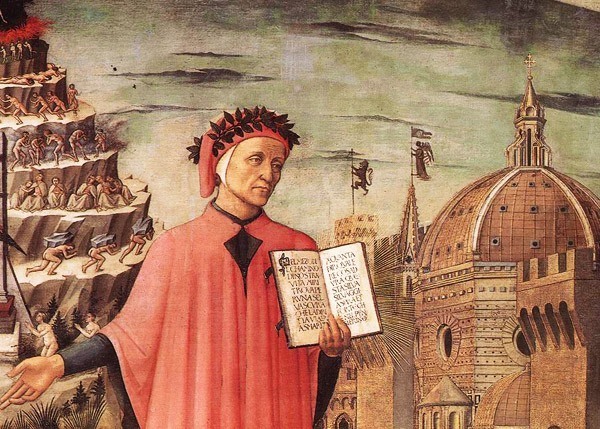by Thomas O’Dwyer
At one point midway on our path in life,
I came around and found myself searching through a dark wood, the right way blurred and lost.
How hard it is to say what that wood was, a wilderness savage, brute, harsh, and wild.
Only to think of it renews my fear.

The opening lines of Dante Alighieri’s Divine Comedy are as well know to every Italian as “To be or not to be” is to an English speaker. We can only speculate on how many people outside Italy are familiar with the entire poem’s content or context. But none can dispute the depth to which Dante, like Shakespeare, has penetrated not only his native culture but that of the world for centuries. Both did civilisation an immeasurable service by elevating former dialects spoken by their native peoples to the same dignity and power as formal “superior” languages spoken by Europe’s literate elites, such as Latin and Greek.
Dante died 700 years ago this year in 1321 and, pandemic or no pandemic (a dark wood, the right way blurred and lost), Italy will again be celebrating the memory of its great genius. He defines its national soul the same way Shakespeare does for England and Miguel de Cervantes for Spain. Events are planned throughout Florence, Ravenna and close to 100 other towns and villages connected to “il Sommo Poeta,” the Supreme Poet. Born in Florence, Dante died in Ravenna just one year after completing his masterpiece. The Divine Comedy, one of the greatest works of world literature, has 14,233 lines split into three parts, Inferno, Purgatorio and Paradiso. It traces a pilgrim’s journey in the afterlife through Hell, Purgatory and Paradise. Read more »
